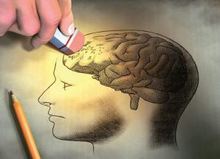Resources

What is Alzheimer's disease?
Alzheimer's disease is the most common cause of dementia, The term 'dementia' describes a set of symptoms which can include loss of memory, mood changes, and problems with communication and reasoning.
Alzheimer's disease is the most common cause of dementia, The term 'dementia' describes a set of symptoms which can include loss of memory, mood changes, and problems with communication and reasoning.

Communicating with Alzheimer's patients.
We all need to communicate with other people. Communicating our needs, wishes and feelings is vital - not only to maintain our quality of life, but also to preserve our sense of identity. This fact sheet gives tips and advice for communicating with someone with dementia and on how to encourage the person to communicate in whichever way works best for them.
We all need to communicate with other people. Communicating our needs, wishes and feelings is vital - not only to maintain our quality of life, but also to preserve our sense of identity. This fact sheet gives tips and advice for communicating with someone with dementia and on how to encourage the person to communicate in whichever way works best for them.

The progression of dementia
Each person experiences dementia in their own way, but it can be helpful to think of the way the condition progresses as a series of stages. This fact sheet outlines the characteristics of early-, middle- and late-stage Alzheimer's disease and briefly looks at how other forms of dementia progress.
Each person experiences dementia in their own way, but it can be helpful to think of the way the condition progresses as a series of stages. This fact sheet outlines the characteristics of early-, middle- and late-stage Alzheimer's disease and briefly looks at how other forms of dementia progress.

Dealing with aggressive behavior in dementia
If you are close to someone with dementia, there may be times when you are faced with aggressive behaviour. This can be very distressing. This factsheet aims to aid understanding about what may cause this type of behaviour and offers some ways to deal with it
If you are close to someone with dementia, there may be times when you are faced with aggressive behaviour. This can be very distressing. This factsheet aims to aid understanding about what may cause this type of behaviour and offers some ways to deal with it

Coping with incontinence
Incontinence can be humiliating for a person with dementia and upsetting for those around them. However, although it can be a distressing problem, it is a surprisingly common one, and the good news is that there is plenty of help out there.
Incontinence can be humiliating for a person with dementia and upsetting for those around them. However, although it can be a distressing problem, it is a surprisingly common one, and the good news is that there is plenty of help out there.
